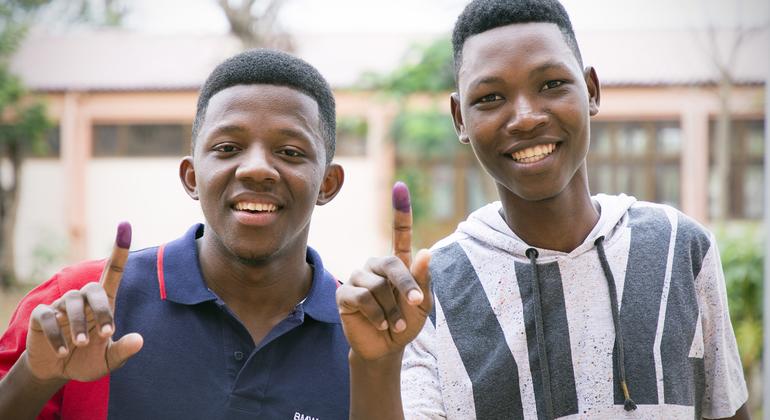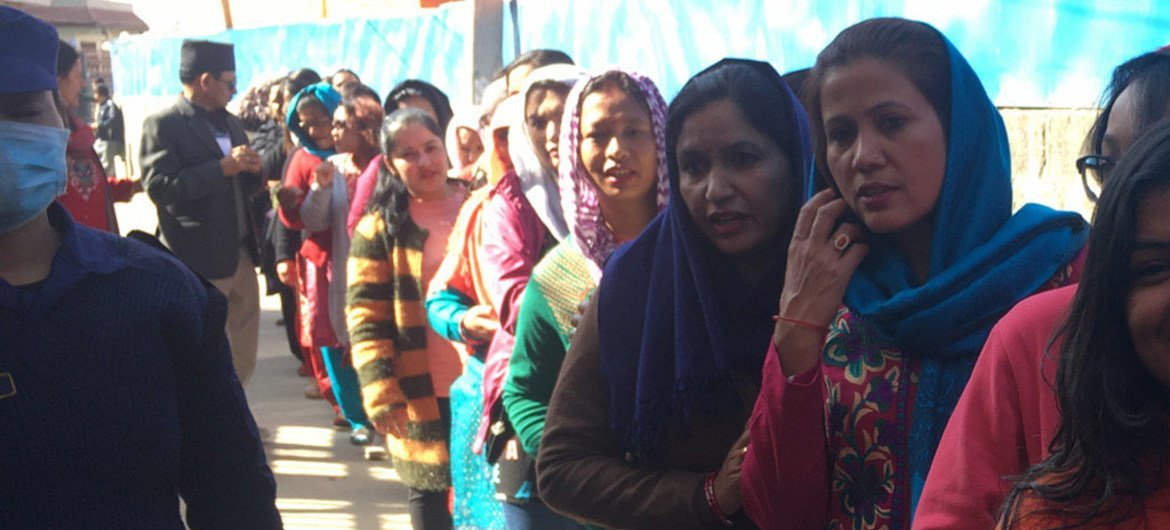Unchecked AI threatens democracy, warns UN chief
 Left unchecked, artificial intelligence (AI) could destabilize democratic systems by spreading disinformation, fueling hate speech and distorting public opinion through deepfakes, the UN Secretary-General has warned.
Left unchecked, artificial intelligence (AI) could destabilize democratic systems by spreading disinformation, fueling hate speech and distorting public opinion through deepfakes, the UN Secretary-General has warned.
These risks are particularly critical this year, as over 50 countries – representing half the world’s population – hold elections.
In a message for Sunday’s International Day of Democracy, Secretary-General António Guterres reiterated the importance of upholding free speech, civil liberties and the rule of law, as well as ensuring accountable institutions and protecting human rights.
“Yet, these rights and values are under attack around the world. Freedoms are being eroded. Civic space is diminishing. Polarization is intensifying. And mistrust is growing,” he said.
Tweet URL
A tool for good governance
Despite the dangers, artificial intelligence has the potential to play a positive role in strengthening democratic systems, he continued, noting that AI can promote full and active public participation, enhance equality and contribute to human development.
“AI can boost education on democratic processes, and shape more inclusive civic spaces where people have a say in decisions and can hold decision-makers to account,” Mr. Guterres said.
By utilizing AI for good governance, countries can create more transparent and accountable systems, that allow citizens to engage more effectively. However, this will require effective governance of AI at all levels, including internationally.
Fostering responsible AI use
Mr. Guterres also highlighted the recent report of the UN’s High-Level Advisory Body on Artificial Intelligence with recommendations on harnessing the benefits of AI while mitigating the risks.
“The message is clear: AI must serve humanity equitably and safely,” he stressed, adding that the upcoming Summit of the Future will be a critical platform for nations to discuss ways to strengthen international cooperation on AI.
“On this International Day of Democracy, let us keep working to build a more inclusive, just, and equal world.”
Women’s political participation essential
It is equally crucial to address another fundamental aspect of democracy: the equal political participation of women, as emphasised by UN-Women, the lead agency for gender equality.
“Their inclusion is a matter of justice and a key factor in creating more effective governance,” the agency said, noting that women’s representation is vital for advancing issues such as health, education, and gender-based violence.
Despite this, women’s voices remain underrepresented in decision-making globally.
Only 27 countries are led by women – an increase from 18 a decade ago – while women hold just 23 per cent of cabinet positions worldwide, and only 15 countries have achieved gender parity in their cabinets.

UN News/Vibhu Mishra
Women voters wait to cast their ballots for federal and provincial elections at a polling location in Bhaktapur district, Nepal. (file)
Challenges to representation
Harmful social norms and gender-based violence continue to hinder women’s political rights and media stereotypes often undermine their leadership capabilities. Additionally, online threats of violence against women in politics and public life are rising, potentially exacerbated by AI technologies.
To address these pressing problems, UN-Women urged governments to take proactive measures to close the gender gap in political participation.
This includes implementing gender quotas, combating violence against women in politics, ensuring equal treatment of women voters and candidates, investing in capacity-building for women candidates, and promoting fair and transparent media coverage of women’s political roles.
The International Day
Commemorated annually on 15 September, the International Day of Democracy provides an opportunity to review the state of democracy in the world. This year, the focus is on the role of artificial intelligence (AI) as a tool for good governance.
It was established in 2007 by the UN General Assembly, which reaffirmed that democracy is a universal value based on the freely expressed will of people to determine their own political, economic, social and cultural systems, and their full participation in all aspects of life.
The Assembly also encouraged Governments to strengthen national programmes devoted to promoting and consolidating democracy, including through increased bilateral, regional and international cooperation.



